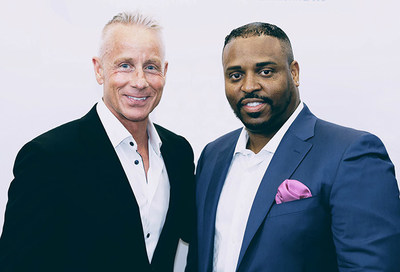
Hey there, readers!
Today, I want to dive into a topic that many Americans find themselves caught up in: timeshares. 🏖️💰
Timeshares are often marketed as a smart financial move that will bring years of enjoyment for you and your family. But what the industry doesn't want you to know is that timeshares aren't investments in the true sense of the word. In fact, the secondary market for these vacation products is deeply depressed, with desperate sellers practically giving them away.
So, before you plow tens of billions of dollars into a timeshare, let's take a closer look at the reality behind the glossy brochures and sales pitches.
First off, let's talk about what most timeshare owners think they own versus what they actually own. There is a gigantic gulf between the two, and it's a form of phantom wealth that is easily worth more than $100 billion. Many owners are shocked to find out that their weeks in paradise not only lose all their value but also come with perpetuity fees that can burden them and their heirs.
And it's not just the owners who suffer. The timeshare industry has been hit by economic trends that have made things worse. Inflation has squeezed household budgets, while property insurance and maintenance fees have skyrocketed.
But let's not forget about the stock market. While Monday's downbeat mood saw major U.S. indexes sell off, index fund investors still have around 99% of their wealth compared to Friday's all-time high. 📉
Now, let's shift our focus to the Magnificent Seven stocks that have been delivering heady gains. Except for one of them—Tesla. Elon Musk's electric vehicle company has lost a whopping 40% of its value and is struggling to regain its footing. Recent revelations about Musk's financial ties and illegal drug use with directors of his company have only added to the turmoil.
So, what does this mean for stock investors? Well, it's important to keep things in perspective. While record levels may spark nervousness, the burning question isn't whether stocks are worth owning, but rather which part of the market will continue to deliver strong gains.
Speaking of strong gains, let's talk about AbbVie, the pharmaceutical company behind the blockbuster drug Humira. This drug has generated over $200 billion in revenue and has become one of the highest-grossing drugs of all time. However, as Humira's decline begins, AbbVie is banking on its two newer anti-inflammatory drugs, Skyrizi and Rinvoq, to bring in billions in sales.
AbbVie's success in navigating the decline of Humira holds powerful lessons for investors, pharmaceutical companies, and legislators. Their legal strategy, which involved patents and keeping cheaper copies of Humira out of the U.S. market, has been controversial but effective.
And as always, let's not forget about the latest news. Facebook's ad business is booming again, and AI is giving better cover to a surge in capital spending. Meanwhile, a new classification system for food could pose a problem for makers of snacks and ready meals.
That's it for today, folks! Remember, timeshares may promise paradise, but the reality is often far from it. Stay informed, stay smart, and make wise financial decisions. 💡💸
Comments
Post a Comment